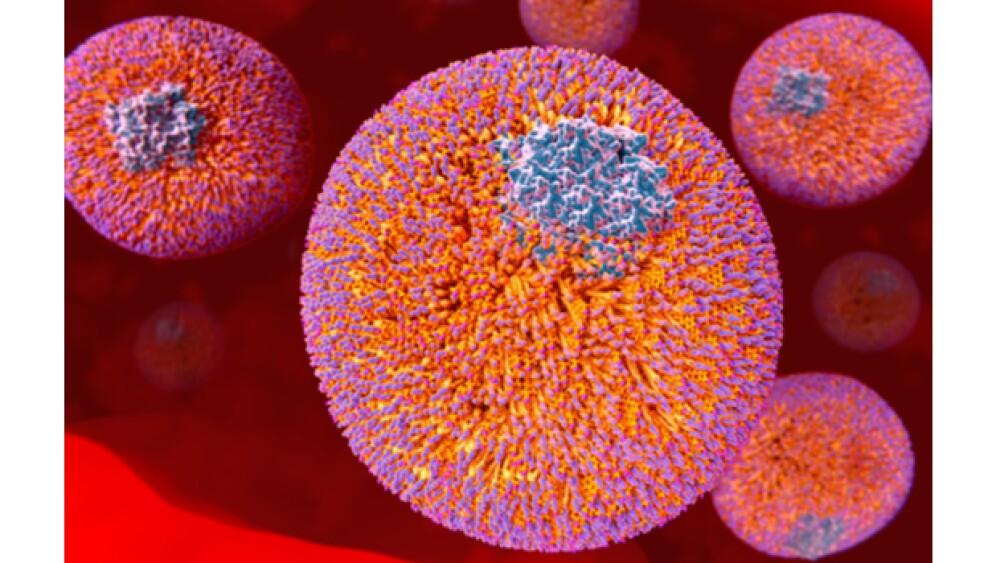Esperion, based in Ann Arbor, Mich., announced results from its Phase III Study 2 of bempedoic acid at the American College of Cardiology (ACC) annual meeting.
Esperion, based in Ann Arbor, Mich., announced results from its Phase III Study 2 of bempedoic acid at the American College of Cardiology (ACC) annual meeting. The drug is being developed as a complementary, cost-effective, once-daily, oral cholesterol-lowering therapy.
Bempedoic acid is a first-in-class oral ATP Citrate Lyase inhibitor that reduces cholesterol biosynthesis and lowers LDL-C by up-regulating the LDL receptor. It also reduces hsCRP, a key marker of inflammation linked to cardiovascular disease similar to statins.
Esperion released results from Study 2, also known as CLEAR Wisdom. The company has a monotherapy of bempedoic acid and a combination tablet of bempedoic acid and ezetimibe.
In the trial, bempedoic acid significantly decreased LDL-cholesterol by 17 percent with statins, and maintained significant reductions in LDL-cholesterol for a year. It also lowered high-sensitivity C-reaction protein (hsCRP) by 19 percent. The adverse event profile was similar to the placebo, as well as the serious adverse event profile.
“In the CLEAR Wisdom Trial, bempedoic acid was shown to be safe and well-tolerated and also provided significantly lowering of LDL-cholesterol in patients on background maximally tolerated statin therapy,” stated Anne C. Goldberg, professor of Medicine, Division of Endocrinology, Metabolism and Lipid Research at Washington University, St. Louis, and lead study author. “These results show that bempedoic acid could be an important new, oral treatment option for high-risk patients who require additional LDL-C lowering.”
The study ran for 52 weeks and studied the efficacy and safety of bempedoic acid 180 mg/day compared to placebo. It was conducted at 86 locations in North America and Europe with a total of 779 patients. They were randomized 2:1 to receive bempedoic acid or placebo. The primary efficacy endpoint was the 12-week LDL-C lowering effectiveness of bempedoic acid compared to placebo.
Both bempedoic and the bempedoic/ezetimibe combination new drug applications (NDA) have been submitted to the U.S. Food and Drug Administration (FDA) as well as to the European Medicines Agency (EMA).
If approved, the drug will come into a competitive marketplace for tough-to-treat-cholesterol therapies. At the moment, the two big drugs in that market are PCSK9 inhibitors, specifically Amgen’s Repatha and Regeneron and Sanofi’s Praluent. But those two drugs have had difficulties gaining traction in the market because of their high prices, and the fact they are injectables.
As Evaluate points out, bempedoic acid’s results aren’t as significant as the PCSK9 inhibitors. For example, in the Repatha Fourier cardiovascular outcomes trial, a placebo-adjusted change at 72 weeks was 57 percent. And bempedoic acid hasn’t been evaluated for cardiovascular outcomes yet, although its 12,600-patient Clear Outcomes trial will complete enrollment later this year.
Also, Amarin Corporation presented data at the ACC showing that its Vascepa (icosapent ethyl) decreases the risk of first and subsequent heart attacks, strokes and heart problems by 30 percent. Vascepa is derived from fish—but is not fish oil. It is made up of the omega-3 acid (EPA) in ethyl-ester form and has been designated a new chemical entity by the FDA.
The REDUCE-IT clinical trial looked at 8,179 patients, evaluating the effect of Vascepa as an add-on to statins in patients with high cardiovascular risk who, despite stable statin therapy, had high triglyceride levels of at least 135 mg/dL. A big portion of those enrolled in the trial were also diagnosed with type 2 diabetes.
Although lowering triglyceride levels alone in other studies hasn’t lowered cardiovascular risk, in this study, Vascepa significantly decreased the first occurrence of primary major adverse cardiovascular events (MACE) by 25 percent and primary plus recurrent MACE by 30 percent compared to placebo. It also seemed to decrease the incidence of a fourth or more adverse events by 48 percent compared to placebo.
There are concerns over the REDUCE-IT study, partly because the mechanism of action of Vascepa isn’t very well understood, and the results released were a tertiary, non-standard analysis, with the initial results released back in September 2018. There are also concerns that the mineral oil placebo used in the trial might have made the placebo group look worse than it was.





